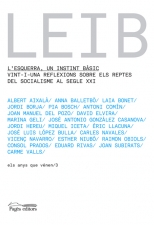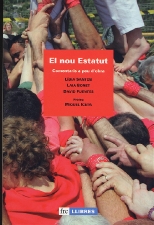Data de la intervenció: 3 de Setembre de 2013
Before I begin, let me thank the organization for inviting me. It’s a great pleasure and I’m grateful for having the opportunity to be part of this panel.
I hope that our brief presentations serve rather to pose new questions that to find straightforward answers to the old or current questions we all have.
My presentation begins with a main question:
- How will the social media affect politics?
And therefore…
- How will the social media affect politics especially in view of the fact that what we have up to today is party politics?
And we could go on, with questions related to the first one:
- Will the web society replace the traditional structures of political action?
- Are we on our way to a new politics without political parties?
A growing number of people think that we are indeed on such a path. But I believe this question is too broad to be answered with a yes or no.
Through history we have had in our hands the tools we needed to change and transform politically the reality: Revolts, thoughts, ideas and writing. And finally we got the vote. But now, we have technology.
None of us has ever had in our hands such a powerful instrument.
Political parties have been always a suitable instrument to mediate between citizens and governments being aware that we, the citizens, had 4 limitations or constraints:
- We hadn’t enough time to be active in politics.
- We hadn’t enough knowledge or information.
- We were alone, not connected.
- We thought that our only “political moment” was the moment of voting, every 4 years.
In a web society, these 4 constraints disappear.
- Technology helps us to gain time.
- We have more information because we can share it.
- We are connected, not alone.
- We can do much more than voting: we can control, monitor, act, impact, or have an influence.
So, let’s go back to the question: does the web society change the role of “mediator” of political parties? And therefore, does politics change?
To try to answer this question I want to address briefly 3 different topics and I will address them as questions:
1. In which scenario takes place this phenomenon?
The answer is very simple: political disaffection. Some important data explain this statement:
- With few exceptions, electoral participation decreases sharply everywhere
- Citizens take a negative view of politics and they associate increasingly politics to certain issues as lies, political corruption, particular interests or troubles.
- The main concerns of citizens are as follows, in this order of priority, unemployment, political corruption, the economy and politics and the political parties.
- And all this is leading to ever-increasing dissatisfaction with democracy and mistrust concerning political parties.
2. What kinds of changes are taking place?
a. A change in the ground rules: The topics Power and Hierarchy change:
i. “Power”: Until now, the word “power” evoked “strength”, “property”, “having structure“ or “greatness”. In an analog society, it’s clear who has the power. However, in a digital society that is not so evident, because the “shapes” of power are not tangible: agility, speed, creativity, community and net. In short, the creation of ideas.
ii. “Hierarchy”: In an analog society hierarchy is defined by the place you have in a pyramid and the structure you have. In a digital society, hierarchy is defined by the authority you have in the sense of reputation. What is important is not what you have, but what other people think of you.
b. A change in the kind of players: if the traditional players were the political parties, in a web society, citizens play too. They are connected, they control, they monitor, they act, they require more transparency, they shape your identity (when they talk about you in the net), they work in community, they create information, they can locate you, they are fast, they are mobile, they can influence, they are creative. They don’t wait for changes. They cause changes.
c. A change in the playing field: traditional politics is played in a pre-defined field: local, regional, national… and you can’t move out of that closed field. In a web society, politics is played at the same time in the local and the global field (“glocal”). It is the best way to win political battles.
d. A change in the rewards: ¿It is only about the traditional political power or about the construction of majorities and reputations?
3. What do we have to do?
What we should do is the same that any other animal species would do in a new ecosystem: either you understand the ecosystem and you change, or you disappear.
Our political parties are like a puzzle, where every little piece is similar to the other but, at the same time, every piece has its own place and they cannot move to another place.
To be able to adapt to a web society, political parties need to be not a puzzle but a tangram. This is the step from the party-supporters to the community of activists. Furthermore, with a tangram, you can build not only an image. You can do much more.
This is the real challenge. And the technology allows us to deal with such a challenge.
I would like to end by saying that we need a new political culture.
This is the evolution we have witnessed in few decades: at the beginning to show our force citizens needed to meet in the same place at the same time. Some years later, we learned to use tools to amplify our force -our voice- to be heard. Now, to reach people, we connect each other.
The digital society has a mobile lifestyle. We need also having a mobile political style.
If politics and political parties don’t adapt to this reality, they won’t be close to citizens, they won’t reach people.
|
|
|||
|
|
|||
|
|















